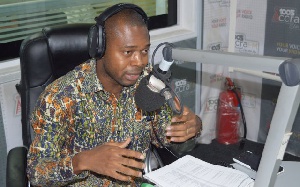Patients should report service providers ripping off the National Health Insurance Authority (NHIA) through dubious claims, head of communications, Selorm Adonoo, has advised.
The NHIA, which runs the National Health Insurance Scheme (NHIS), has been grappling with illegal claims from some health providers since its inception, actions which come at a huge cost to the scheme and threaten its continued existence.
According to Mr Adonoo, the service had implemented checks to eliminate fraudulent claims in the system, with the result that some service providers found culpable had been either suspended or struck off the list of accredited institutions.
He said staff of the scheme had a monitoring and evaluation team including clinical audit officers that visited and inspected the books of accredited health centres and other health providers prior to payment of claims.
“When we go round and detect an irregularity, we take it up with them (service providers). If they correct it, that is fine, but if they don’t correct it, on our next visit, we sanction and we punish them,” he told Chief Jerry Forson on Accra100.5FM’s Ghana Yensom, the station’s morning show on Monday July 25.
He said such sanctions often involved making withdrawals from the claims of culpable service providers. However, in very bad cases, he explained that such partners were removed from the list of accredited NHIS providers.
As an additional check, the NHIA official said the authority also had call centres and social media pages where they receive complaints, which they follow up on by “confronting” the facilities concerned.
Mr Adonoo stated that in spite of these checks, problems persisted because of the unwillingness of Ghanaians to report wrongdoers, often citing family and social ties or other association.
He gave one example of a woman whose records at a health facility she delivered at, indicated a Caesarean section had been performed on her though the NHIA had realised, when it tracked her down, that she gave birth through natural means. Though the authority had saved itself from being duped, Mr Adonoo observed that the nursing mother said she felt reluctant to report the false entry as she worshipped at the same church with the culprit.
“That is the attitude, sometimes, of Ghanaians. We do not want to expose offenders, but if you do not report their conduct, how do we correct what they do?” he wondered. So, it’s an attitudinal problem, sometimes a behavioural thing. You can do all you are doing, but if the one about whom there is a misconduct is a friend, relation or a leave-it-to-God person, he refuses to pass on the information for action to be taken. These things don’t help the country.”
He asked patients to be assertive and warn service providers making false entries on their records that they would report them. Mr Adonoo also said patients were free to notify staff of the NHIA of such irregularities at its district offices for action to be taken so others take a leaf from such punishment.
General News of Monday, 25 July 2016
Source: classfmonline.com

















